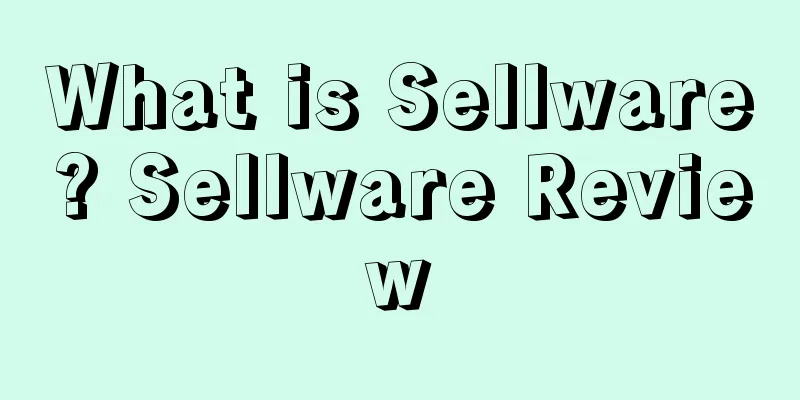|
▶ Video account attention cross-border navigation Stone is sharpened by grinding, and dullness is turned into sharpness. The will of cross-border sellers always becomes stronger with each hardship. In 2021, a sudden wave of Amazon account bans caught Chinese cross-border sellers off guard. Amazon has banned more than 3,000 Chinese stores, affecting more than 50,000 Chinese sellers, on the grounds of suspected illegal operations such as "brushing orders" and "manipulating reviews". The estimated losses to China's cross-border industry are even more than 100 billion yuan. Based on this, in order to reduce their dependence on third-party platforms, many cross-border sellers have begun to turn their attention to independent websites as a new channel. An authoritative report shows that as of the end of 2021, 24% of Chinese cross-border sellers have built independent websites, and 47% of sellers have not built websites but are interested in doing so. However, operating an independent website is not always smooth sailing. We understand that recently many independent website sellers have reported abnormal situations in their PayPal account funds. Independent sites also crashed! A large number of sellers’ PayPal accounts were cleared It is learned that PayPal is carrying out a special operation against accounts in China recently. The scope of the operation is very large. A large number of independent website sellers’ PayPal accounts have been cleared and their funds have been directly frozen, resulting in heavy losses. Among them, the amount of money deducted from a big seller even exceeded 54 million yuan. ▲ The picture comes from Weibo The email sent by PayPal's customer support center clearly stated that the seller was deducted liquidated damages for violating the PayPal Fair Use Policy, which includes "suspected trademark infringement and selling counterfeit goods." In this regard, we also learned that due to the relatively loose supervision of independent sites, in recent years, independent site operators have frequently infringed on trademarks, counterfeit goods have been rampant, and there are a large number of violations. Although platforms such as Shopify and PayPal have continued to increase their crackdown efforts, they are still unable to eradicate this situation. As early as late March 2020, PayPal had blocked thousands of seller accounts. The funds in the seller accounts were directly frozen at the time, and the amount of losses was estimated to be hundreds of millions of US dollars. ▲ The picture comes from Weibo A seller revealed that according to foreign practices, if a buyer encounters similar illegal and fraudulent behavior by a seller, he or she can ask the payment institution for compensation. PayPal has once again launched a special rectification campaign and increased its crackdown efforts, and it is likely that it has paid a large amount of compensation as a result. However, precisely because PayPal's special campaign this time is so powerful and covers a wide range, it is very similar to Amazon's account blocking action last year, and compliant sellers may be accidentally harmed. In addition, PayPal's move to directly freeze the seller's funds is also somewhat inappropriate. In the previous article "Shenzhen seller successfully recovered frozen funds! The cross-border giant's net profit soared by nearly 700%!", it was also mentioned that the second clause of the Amazon agreement, "freezing seller funds", had been declared invalid after a Shenzhen seller went to court with Amazon, and the frozen store funds were successfully recovered by the seller. This time, PayPal's freezing of the seller's funds seems to be similar to Amazon's clause. If it were to go to court with the seller again, I wonder if the situation would be similar to Amazon's final ruling. But no matter what, I still want to remind all sellers here that whether operating on Amazon or operating an independent website, compliance is an inevitable trend. Do not seek temporary benefits, which will cause problems with your account and return to the pre-liberation era. In addition, the recent special activities for Chinese cross-border sellers are not limited to PayPal's "account clearing". It is understood that American companies have also filed a 337 investigation application for specific Chinese dry and wet surface cleaning equipment. US 377 investigation launched! Targeting Chinese brand Tineco It is learned that recently, the United States International Trade Commission officially launched a 337 investigation into certain dry and wet surface cleaning equipment, directly targeting "Tineco", a brand under Ecovacs, a major seller on China's cross-border e-commerce.
▲ Image from the U.S. International Trade Commission It is understood that the 337 investigation is a quasi-judicial procedure conducted by the U.S. International Trade Commission (ITC) in accordance with the relevant provisions of Section 337 of the U.S. Tariff Act of 1930, to investigate intellectual property infringement and other unfair competition practices in import trade, to determine whether infringement has occurred and whether it is necessary to take remedial measures. As the wave of Chinese brands going overseas rises, more and more Chinese brands are riding the wave and starting to gain a foothold overseas, but what follows is the inevitable competition with overseas brands. The 377 investigation against the Chinese brand was initiated by Tineco's strong competitor, the well-known American cleaning appliance brand "Bissell". Prior to this, Shenzhen Yinxing Smart, also a Chinese cross-border big seller, was also investigated by the US company iRobot under Section 377, but the final ruling showed that none of Yinxing Smart's eight products infringed. Afterwards, Shenzhen Yinxing Smart sued iRobot to the Shenzhen Intermediate Court, and ultimately, three iRobot companies were found to have infringed Yinxing Smart's patent for a "cleaning robot that facilitates the removal of trash boxes" and were ordered to compensate Yinxing Smart for the cost of defending its rights. This series of operations by Shenzhen Yinxing Intelligent has undoubtedly set an example for Chinese companies going overseas. As of now, the 377 investigation against Tineco has just begun and the ruling is unclear, but the only thing that is certain is that Tineco's response to this 377 investigation will become a stepping stone for Chinese overseas brands to go global. In recent years, China has introduced a series of favorable policies for cross-border e-commerce, which has made the cross-border e-commerce industry attract much attention. It seems that Chinese brands have entered a golden age when going overseas. However, Chinese cross-border sellers still face many obstacles on their way overseas. In addition to being affected by factors such as epidemic lockdowns and supply chain disruptions, they are also closely related to the fierce competition from overseas brands and the immature compliance awareness of Chinese cross-border sellers. Cross-border sellers still have a long way to go if they want to seize the trend of cross-border e-commerce and complete the new task of promoting Chinese brands overseas. (For more updates on brands going global, please follow our official account: Brands Going Global Observation) I wonder if sellers have encountered similar situations? Welcome to discuss in the comment area~ |










